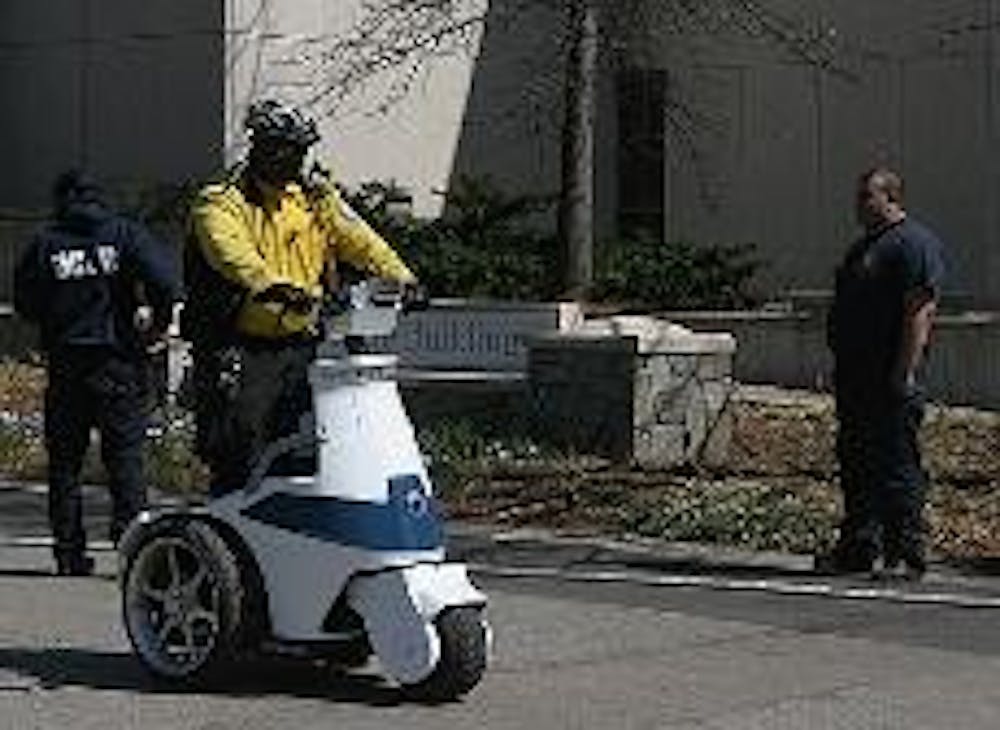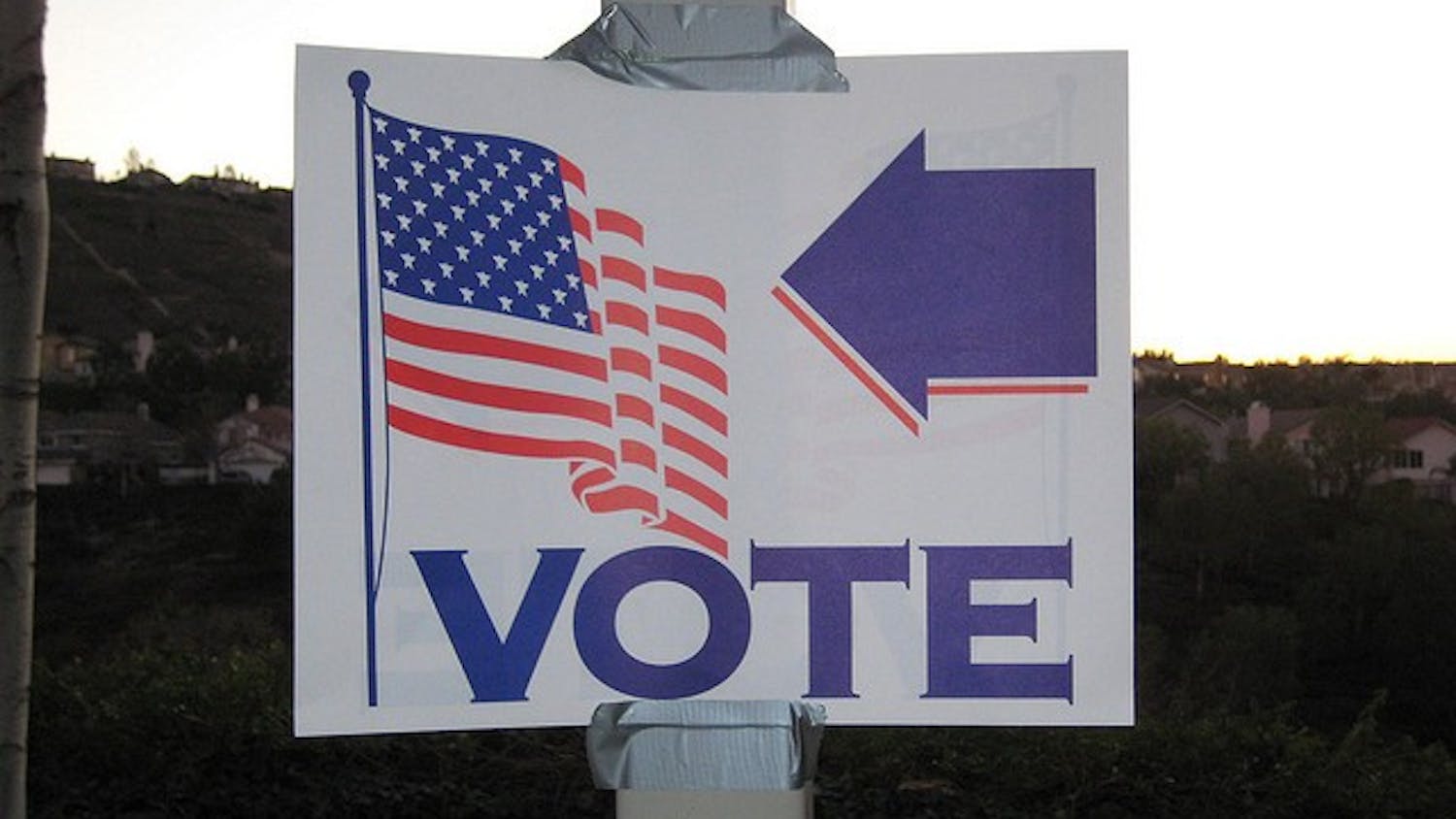Correction Appended
AU Public Safety's recent purchase of three T3 scooters will help decrease officers' response times, according to Public Safety Chief Michael McNair.
The three scooters and extra batteries cost the office $34,000 and replaced one patrol car. They had previously allocated the money to purchase a replacement vehicle but decided to spend it on the scooters instead, he said.
T3 Motion, the company that manufactures the scooters, only sells to police and law enforcement agencies, according to McNair.
Unlike Segways, Public Safety can use the T3 scooters non-stop. The scooters have an extra battery that charges while the scooters are in use. An officer can patrol on the scooter for eight hours before he or she must switch to the new battery to continue. Segways, by contrast, will not work while recharging, McNair said.
"[We] can use a T3 24 hours a day," he said. "You can't do that with a Segway."
The new scooters will help increase the effectiveness of Public Safety officers, he said.
"I wanted more patrolling of the parking lots and the parking garage," McNair said. "Doing it with a car, you can't see as much."
When an officer rides a T3, he or she is nine inches off the ground, he said. This allows him to see over most vehicles and speeds up the patrolling process.
The new scooters will also increase patrols and response times, which McNair said he has not been happy with in the past.
"People feel safer when they see a person," McNair said. "Cameras are not always the complete answer."
During rush hour, officers can go from the Public Safety office to the university's Tenley Campus in five minutes - a trip that during rush hour would take a car at least 10 minutes to make, McNair said.
When an AU shuttle bus was involved in a minor accident at Tenley Circle March 14, Public Safety responded on the scooters and arrived within five minutes to direct traffic and secure the scene, he said. At the same time, Metropolitan Police Department officers were stuck in traffic. The Public Safety scooters can ride on the sidewalks.
Charlie Kilby, a junior in the College of Arts and Sciences and a member of Eco-Sense, said it is good that Public Safety is cutting down its emissions by replacing one of three automobiles with the scooters.
"I think it's really [good] that Public Safety is looking for new and innovative ways to cut down on their emissions and provide a flexible way of getting around campus," Kilby said. "[A] more sustainable choice coupled with effective transport for Public Safety."
Andrew MacCracken, a freshman in the School of Public Affairs, said he questioned whether Public Safety really needed the scooters.
"It's hugely expensive," he said. "I'm not sure where a scooter is going to improve the response times."
MacCracken said that although response times are important, Public Safety does not need the scooters on the quad.
"That's an improper use for them," he said.
Casey Oakes, a junior in SPA, said Public Safety should have asked for student input.
"When Public Safety spends that kind of money, they need to make their case with the student body," he said. "When I see a Public Safety officer on a scooter, it doesn't make me feel safer."
Oakes said he doesn't believe they are necessary.
"You really need to make the case that it's necessary; I haven't heard that," he said. "Until I do, I'm not going be happy about it."
Corrections: In the article "New scooters to help increase response times," the phrase "increased response times" is counterintuitive; it suggests it takes longer for Public Safety officers to mobilize using the scooters. In fact, as the article itself pointed out, the new scooters lower Public Safety response times.
In the same article and the accompanying staff editorial, The Eagle reported that Public Safety did not consult students prior to purchasing the new equipment. To clarify, SG President Joe Vidulich did provide input prior to the purchase, but Public Safety did not seek the opinion of the student body en masse.





